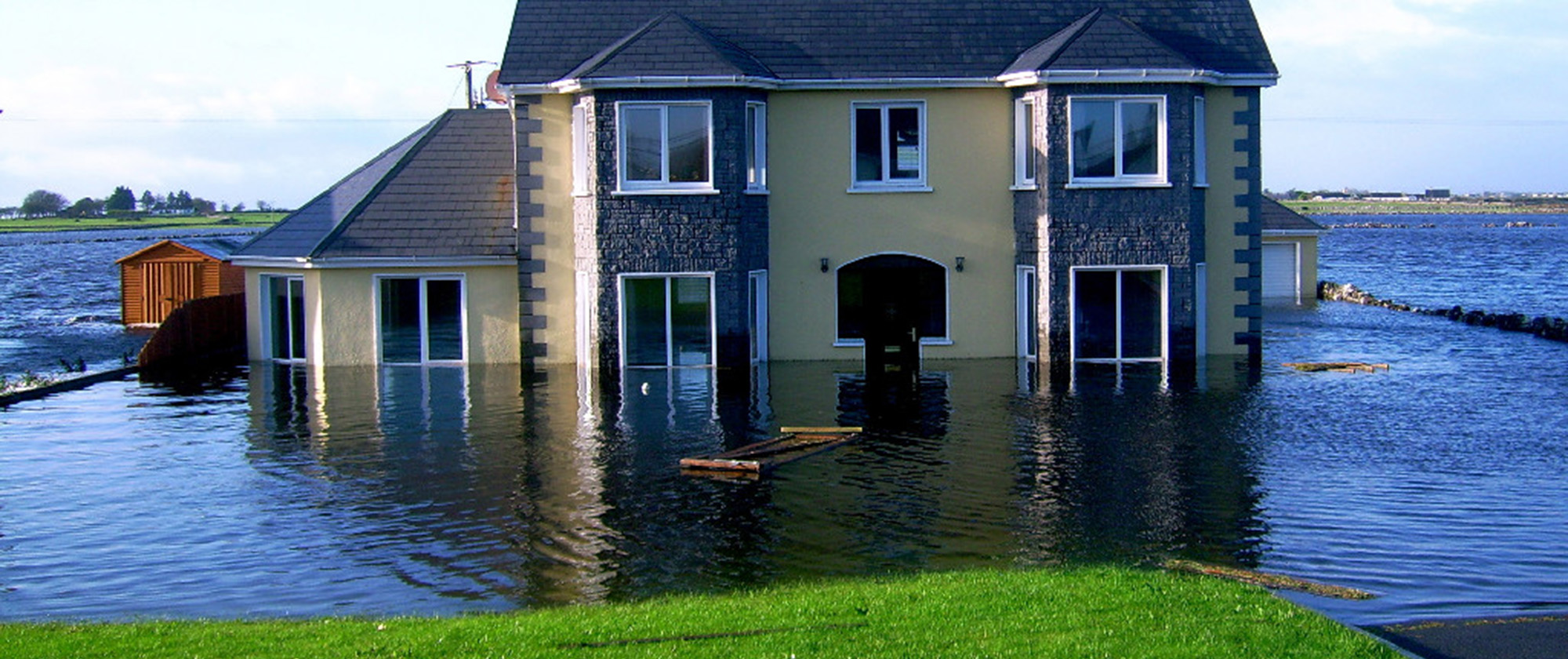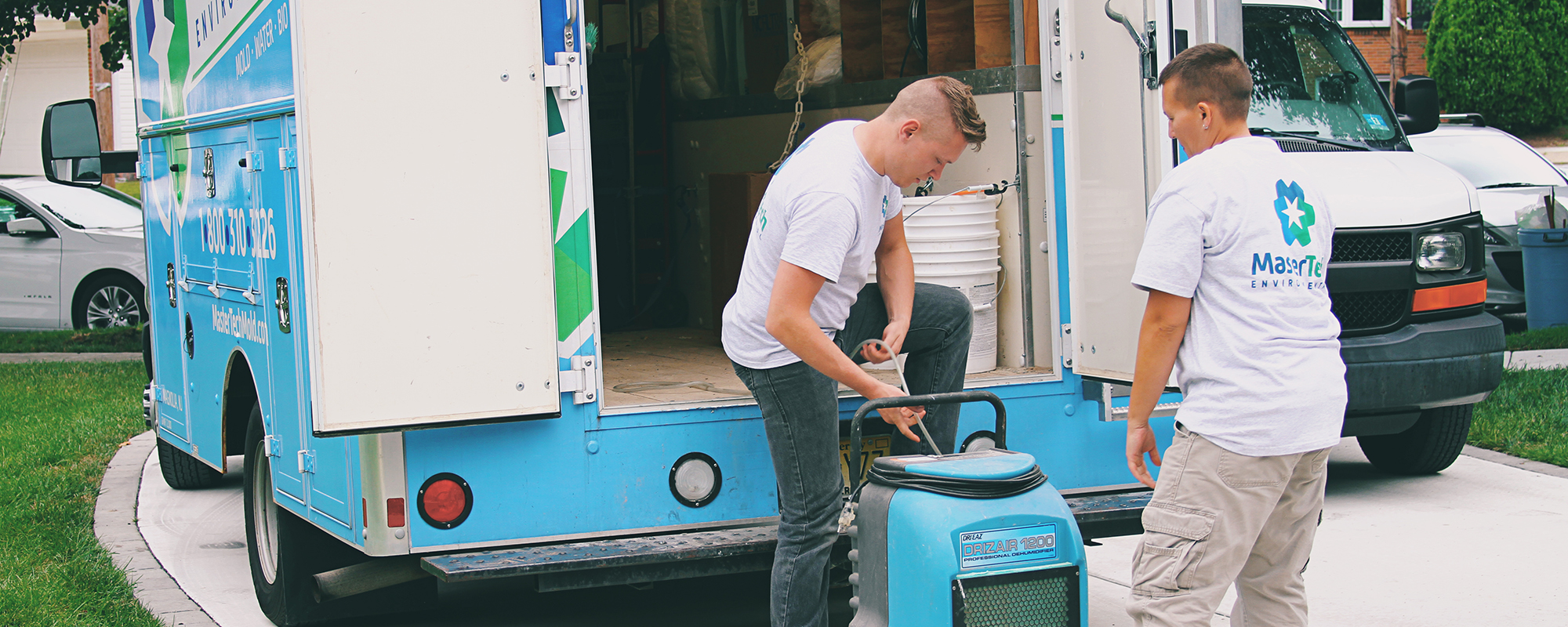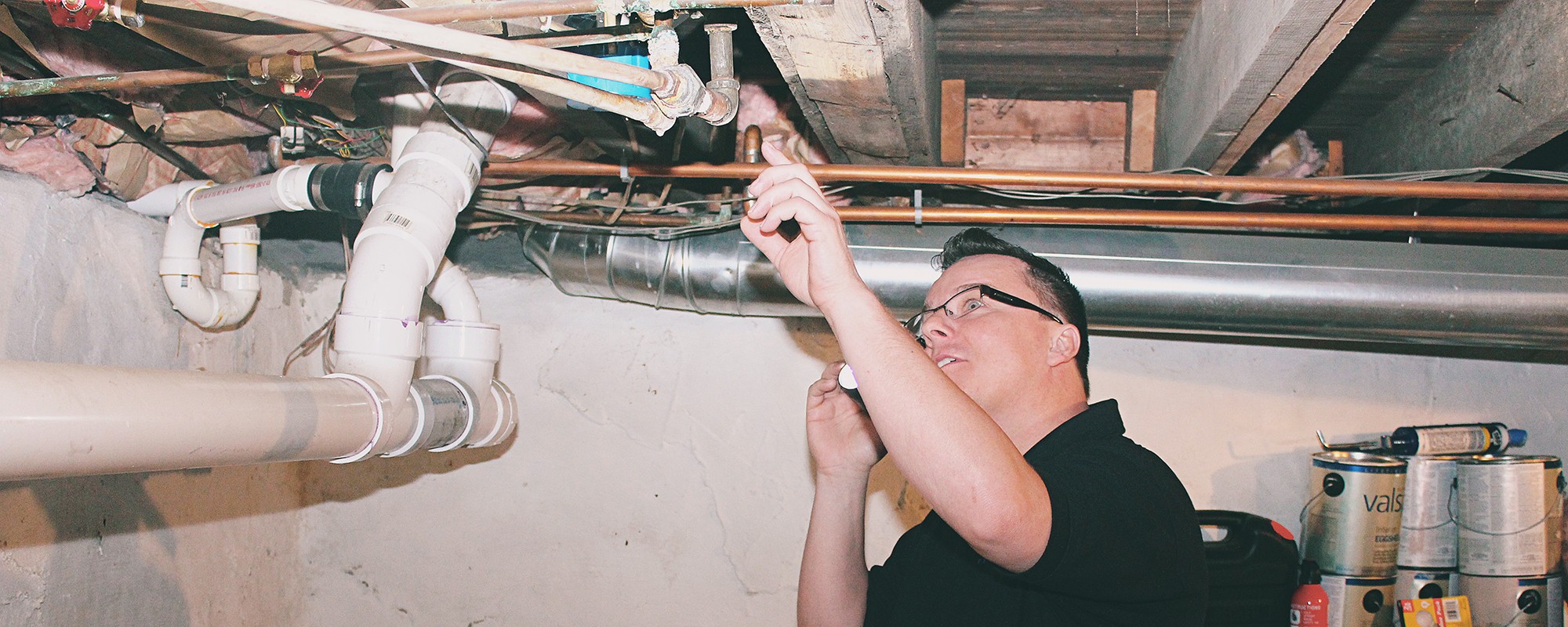
Flooding in your home can be the consequence of various major water events (i.e.: natural disaster, major leaks, heavy rainfall, etc.). Serious flooding can leave your New Jersey home or business especially vulnerable to mold development. As cleanup efforts begin, be sure to bear in mind the potential risks for mold growth and be on the look out for the signs of mold growth (musty odors, powdery spotting, suspicious staining, etc.). Indoor mold growth can mean serious health side effects, severe property damage and diminished structural integrity of your building materials. 
Upon discovering a flood in your home, you need to act FAST. Your home or business needs to be properly and thoroughly dried out as soon as possible. You should dispose all non-salvageable, porous materials immediately. There is a good rule of thumb when you are cleaning up after a flood– “When in doubt, take it out.” If you cannot thoroughly dry and clean an article that has been sitting around in flood waters, whether it’s a cardboard box, drywall, carpeting, wood or furniture, you may want to consider getting rid of it. These items can remain a constant source of mold growth and should be removed from your home.
In the presence of a moisture source, it only takes 24-48 hours for mold to develop and flourish, leaving you with a bigger cleanup, even more property damage and a very expensive bill. Even a small amount of standing water can create water vapors that will rise and create moisture on walls and wood members. Mold needs very little moisture to develop in a basement or crawlspace that already has a moisture or humidity issue.
By using your senses you can usually detect mold by sight and smell. The musty smell and visible mold growth will most likely be in just about all of the affected areas. But be cautious; just because you do not see or smell any mold, that does not mean it is not there. Mold has the ability to grow on virtually any surface. Mold spores are microscopic and can travel and settle in the most hidden of spaces.
All mold needs to flourish is water, food and warmth. Don’t wait and let the problem gets worse. Learn more– Mold Removal NJ
Mold Inspection Following a Flood in New Jersey
If you suspect you may have waited too long to address the flood, or if you suspect that there may be residual moisture in your building materials that can promote mold development, you should consider contacting a trained mold inspector in New Jersey to conduct a comprehensive mold inspection. Even if you do not detect signs of mold development following a flood, a mold inspection may still be beneficial.
- Best case scenario, a thorough mold inspection reveals that the home is mold-free following the flood, and you and your family can rest easy knowing that it is a perfectly safe environment.
- In the event that the mold inspection confirms mold presence, detection of mold in its early stages of development will allow you the opportunity to properly address the contamination before the mold spreads. Early detection and immediate action makes all the difference when it comes to a mold contamination. Given time, unaddressed mold and moisture will eat away at your building materials, leaving you and your family will severe property damage and a very costly remediation bill.
A certified mold inspector will be able to do the following:
- Confirm if it is mold
- Determine the severity of the mold problem
- Understand where the moisture begins and ends
- Prescribe an appropriate and effect mold removal plan
- Recommend preventative tactics to avoid recurrence

Professional NJ Mold Remediation After flooding
If you discover flooding in your New Jersey home, you should consider hiring a professional NJ water mitigation and structural dry-out company to properly dry out your property. Aside from the higher risk of mold growth, any residual moisture in your building materials or hidden standing water in wall voids can severely compromise the structural integrity of your building materials. This can lead to serious and costly property damage.
If you suspect mold development in your New Jersey home or business following a flood, you should contact a mold remediation company in New Jersey to thoroughly assess the problem and offer an appropriate solution. In some, minor cases, professional NJ mold removal may not be necessary; however, it is better to leave it to the professionals to confirm the severity of the mold growth.



